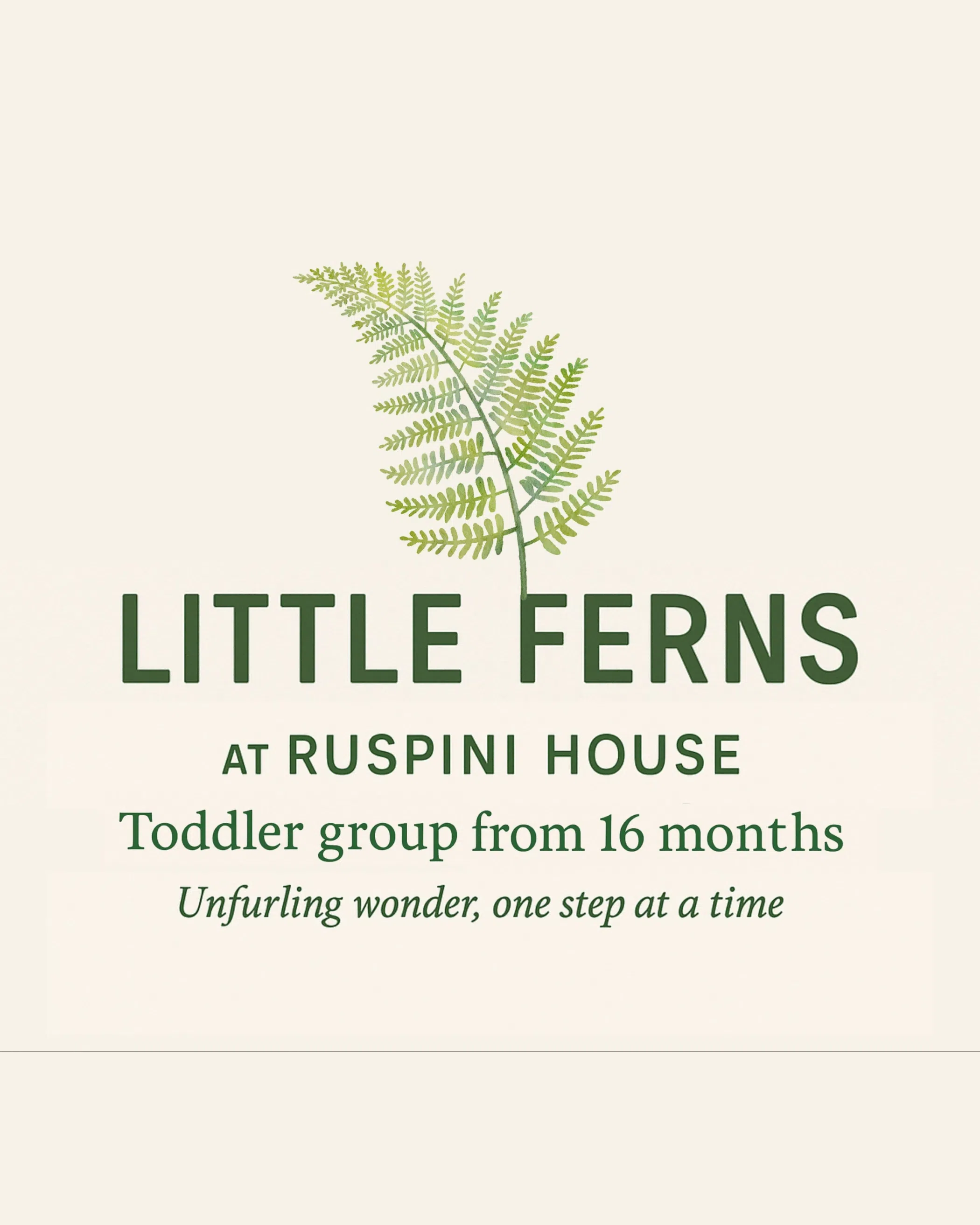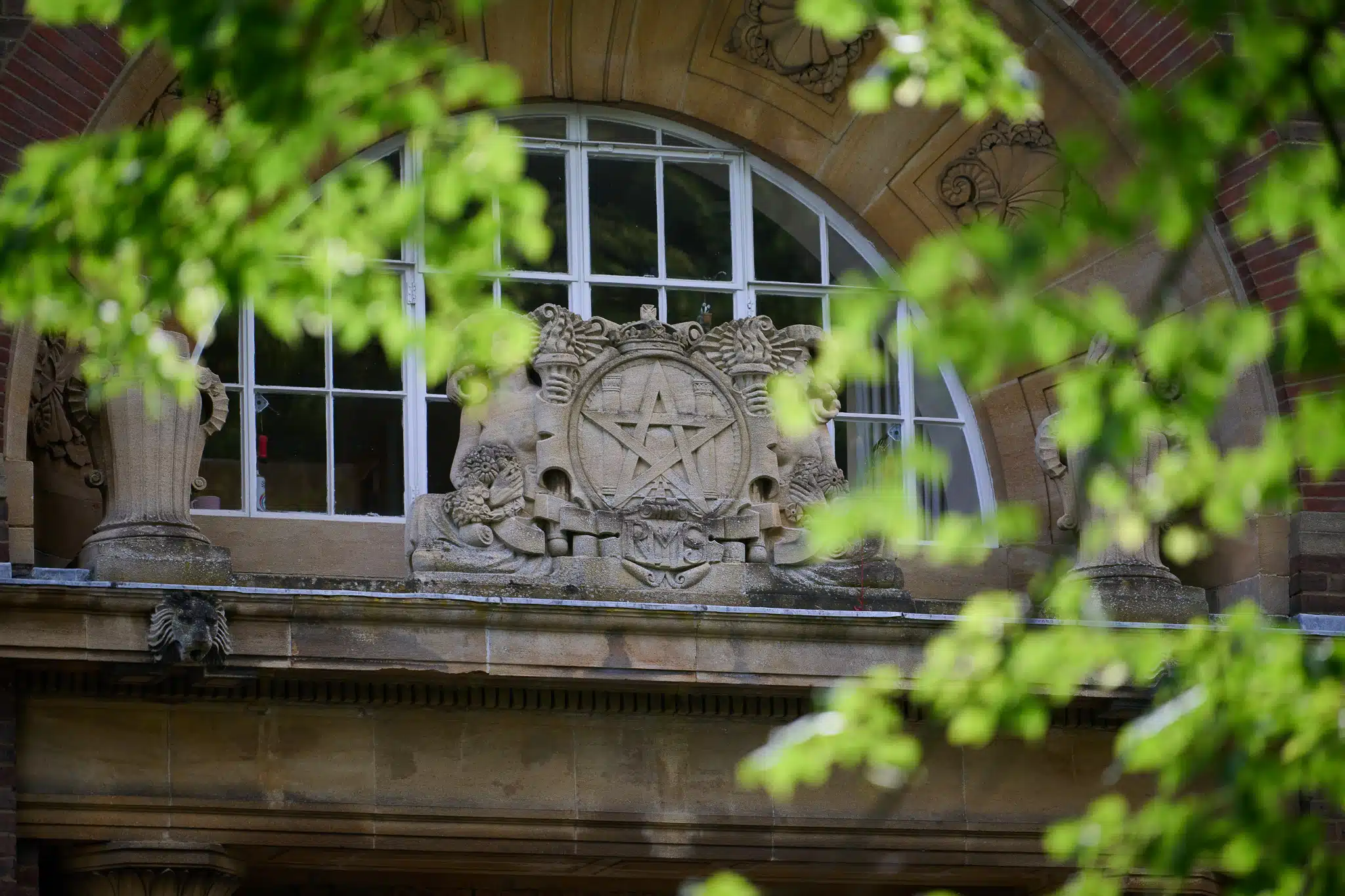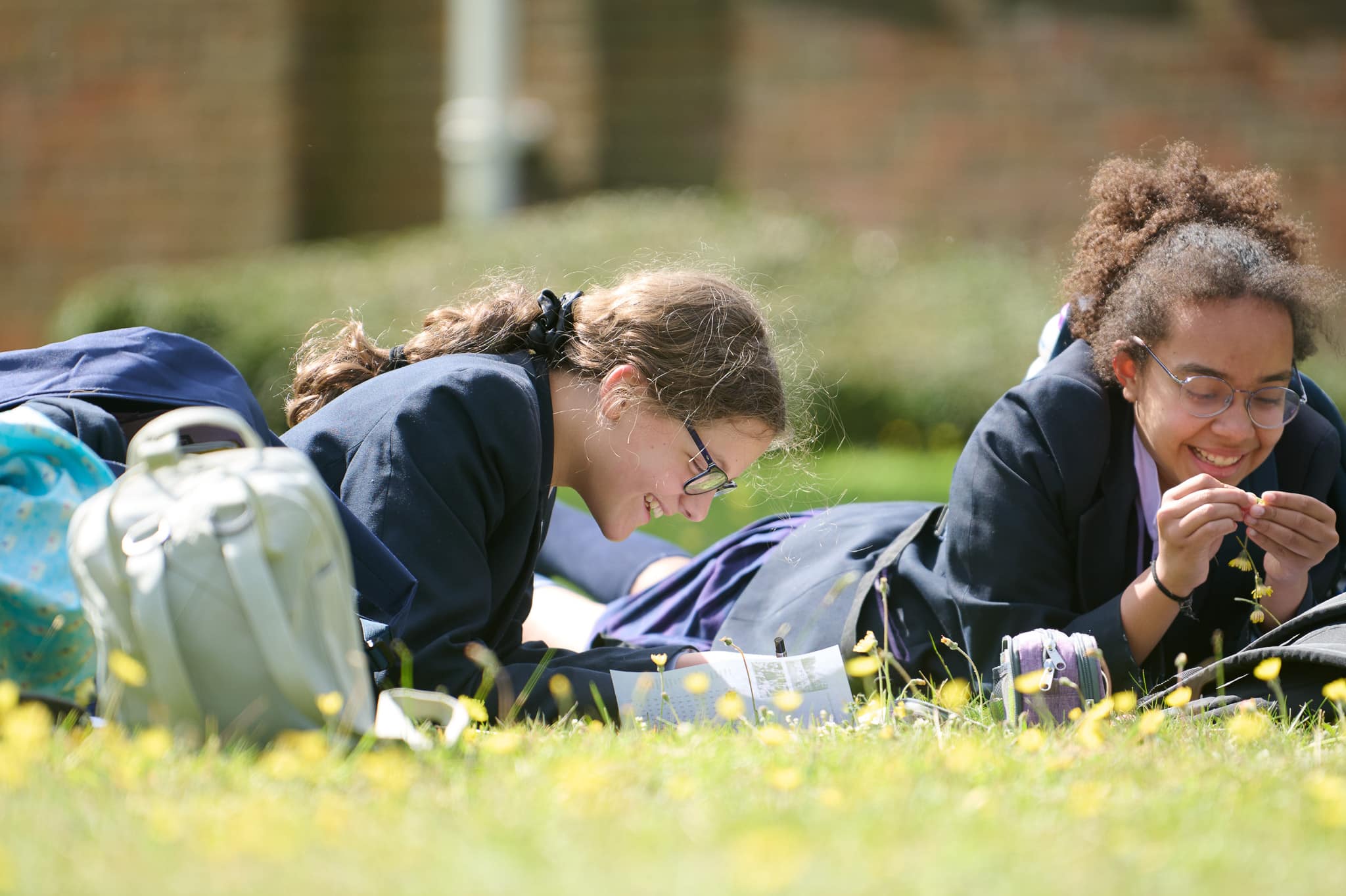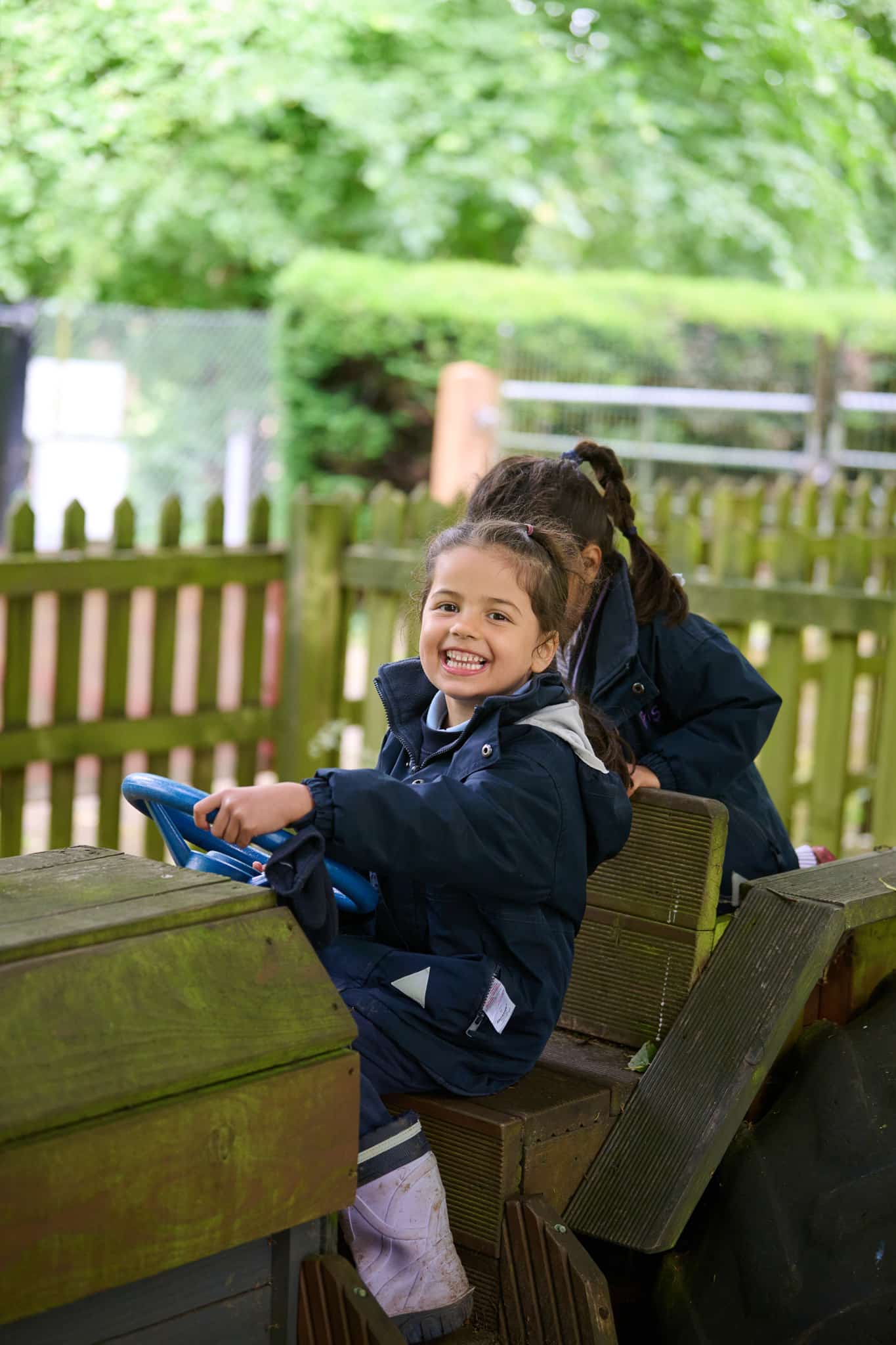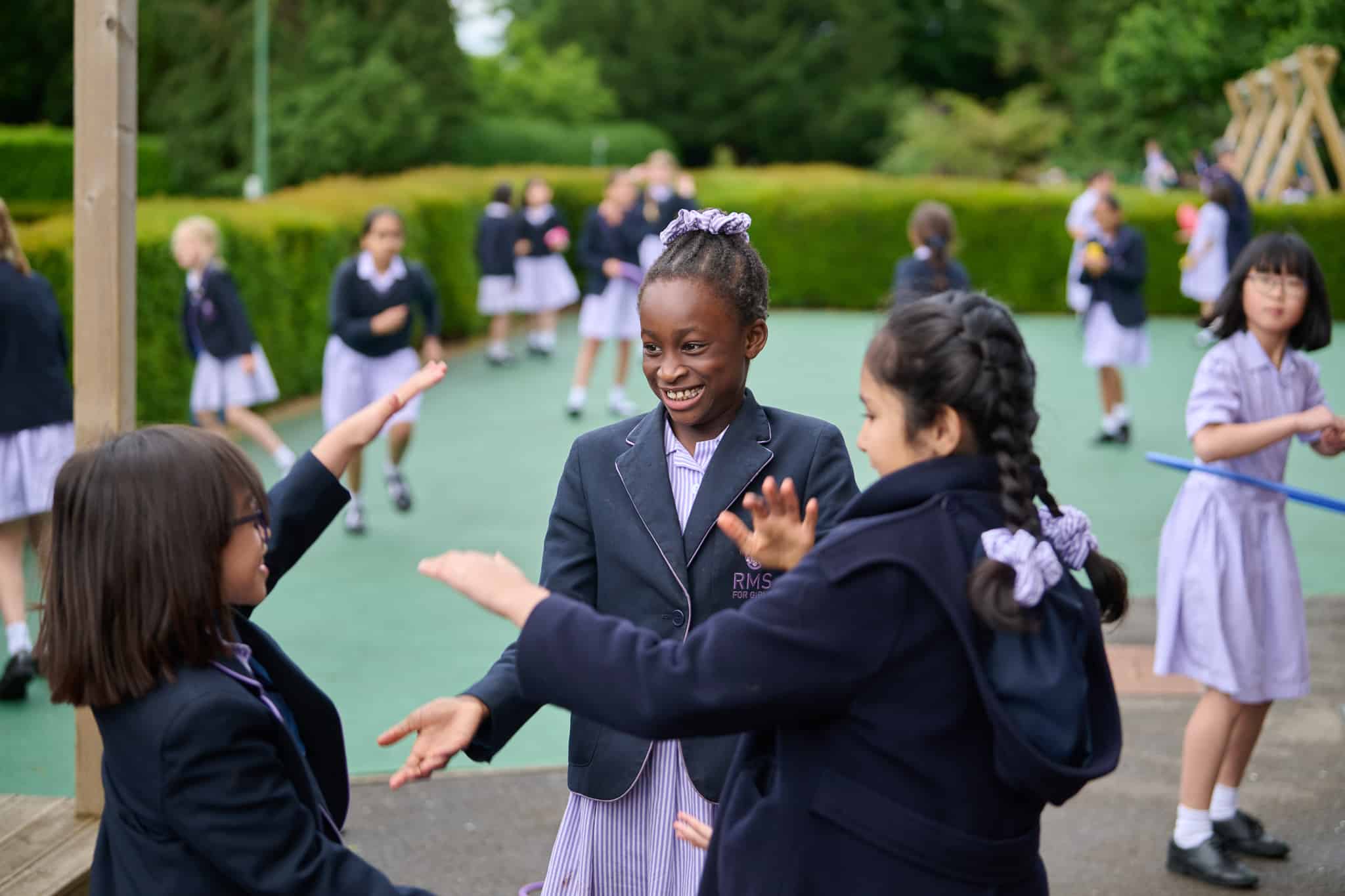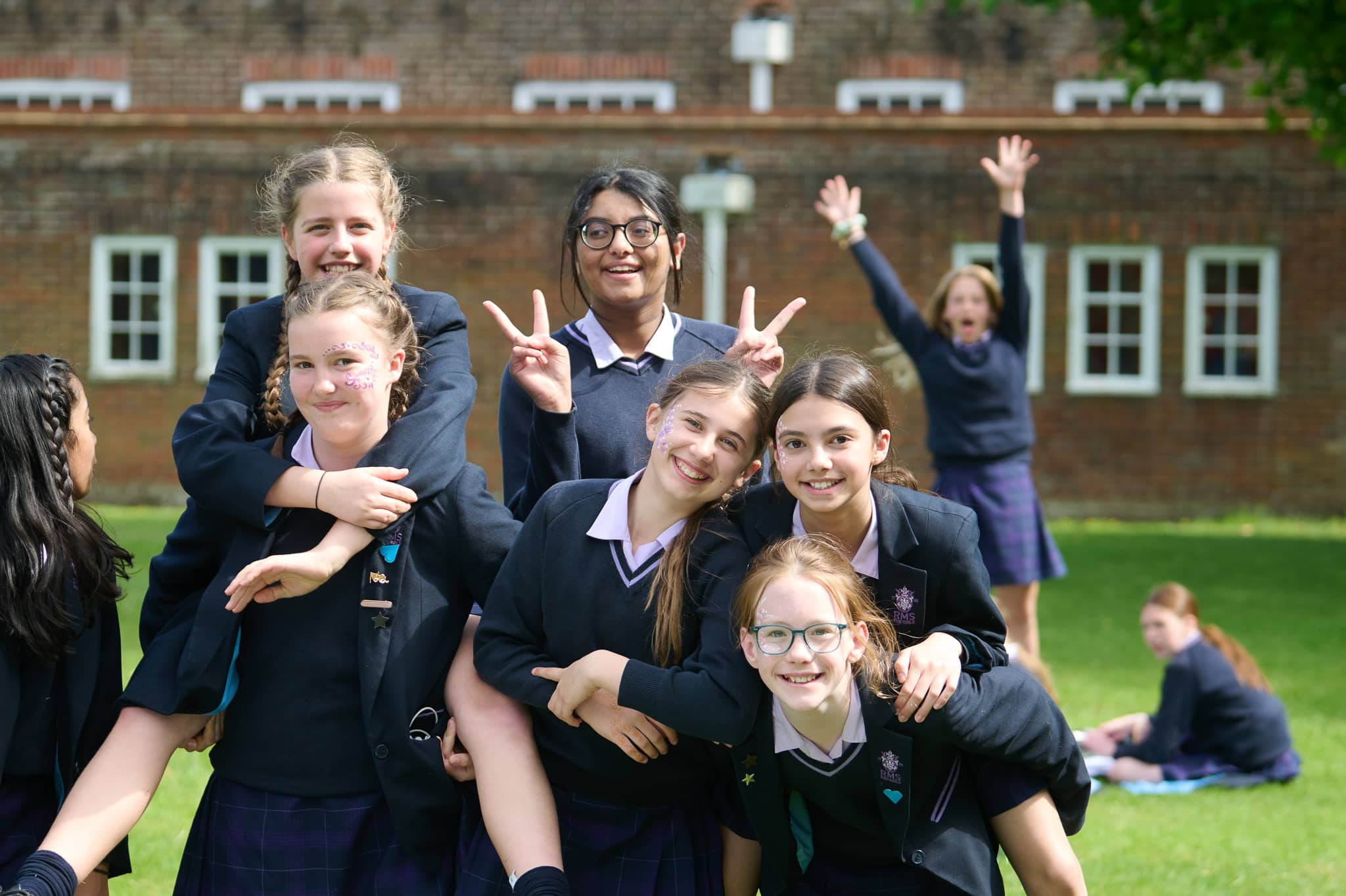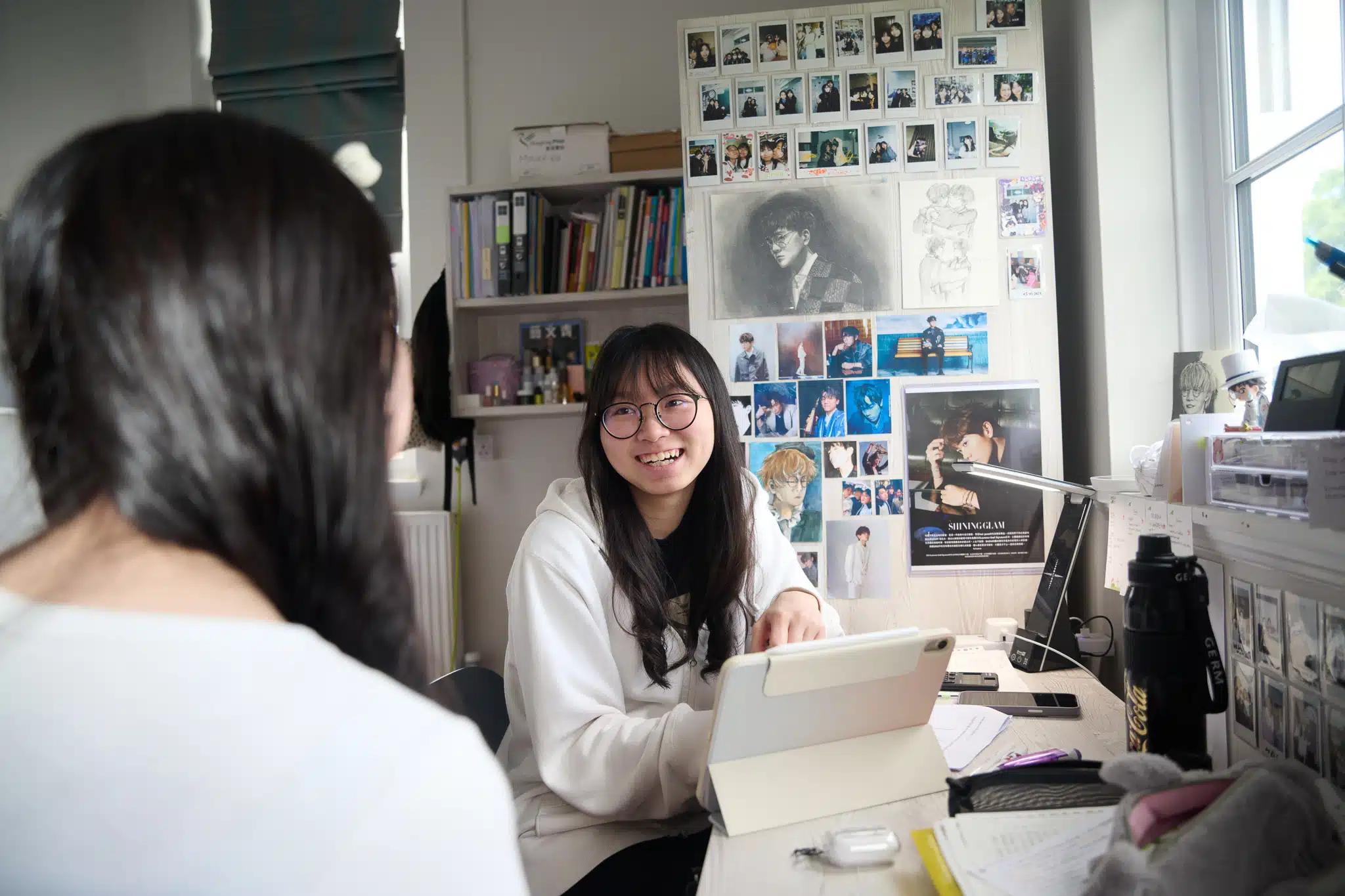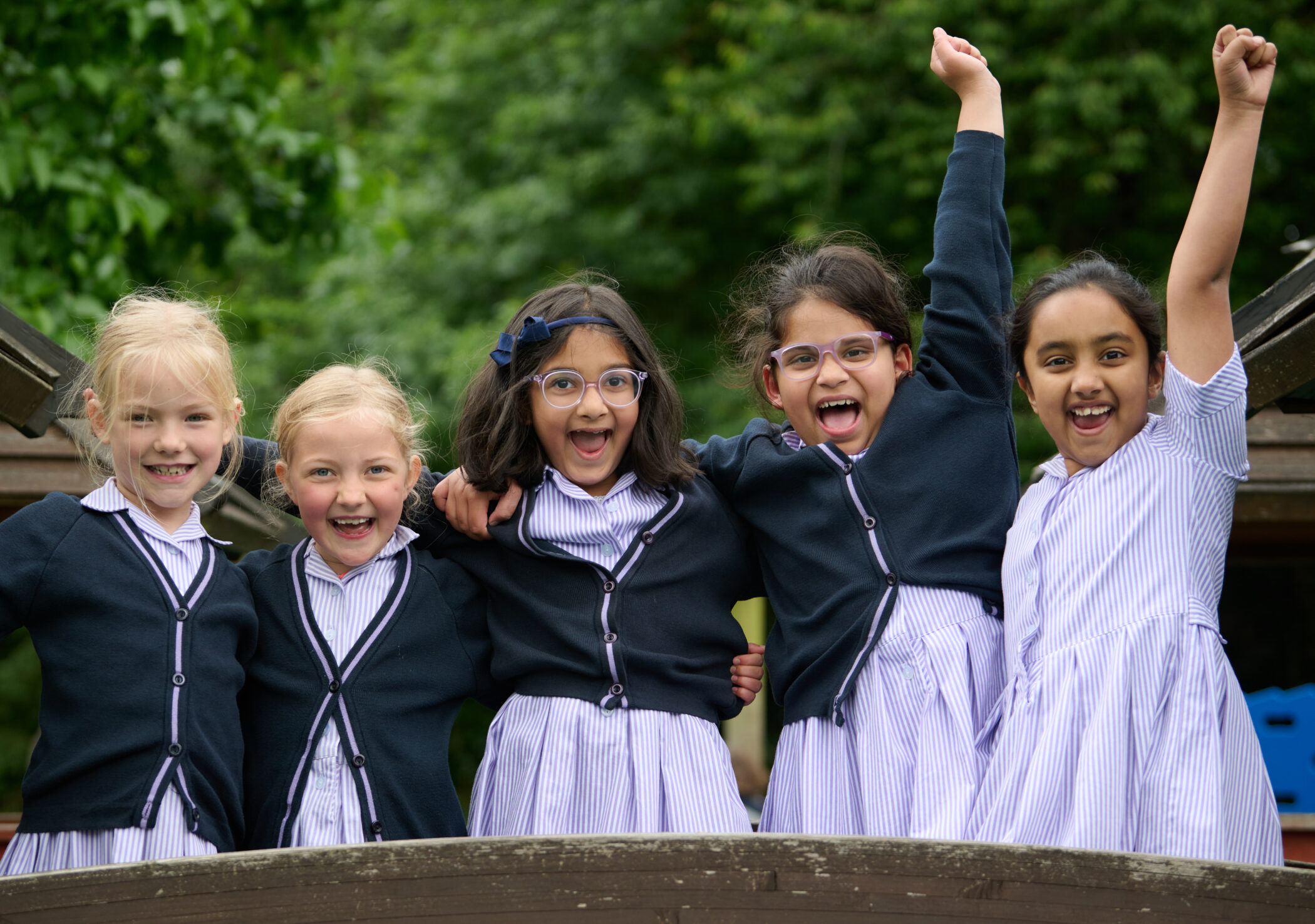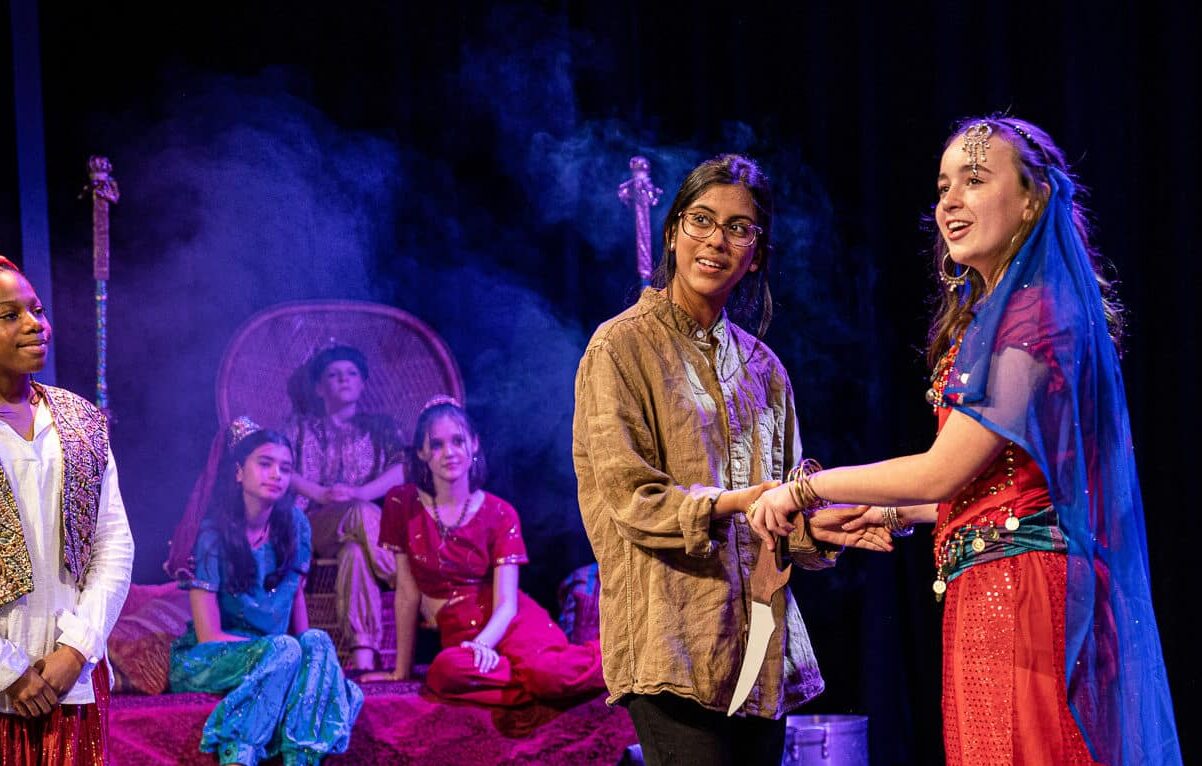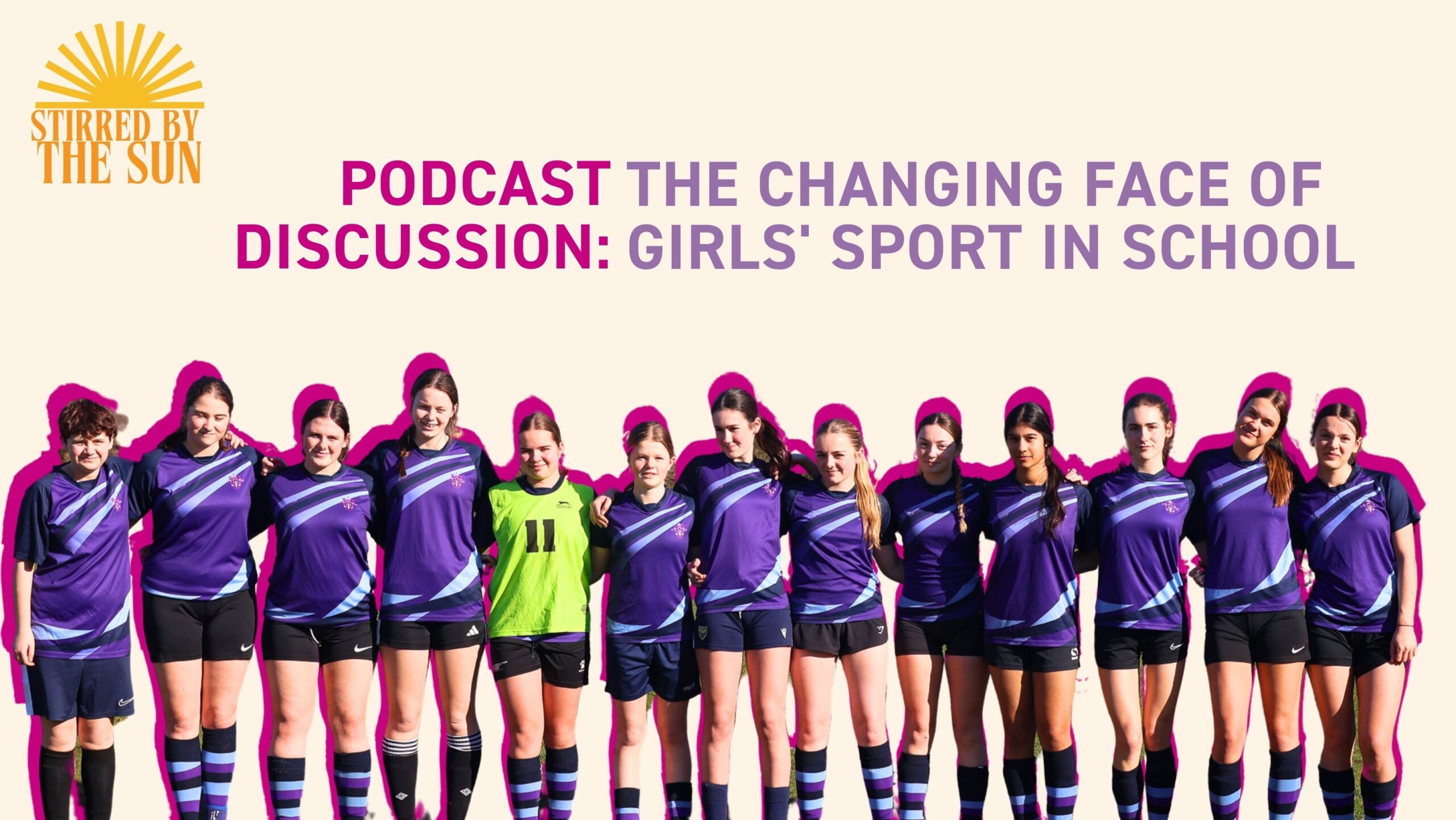In Episode seven of our new podcast Stirred By The Sun, we took a deep dive into the world of Sport and PE at RMS. Hear from our passionate PE staff as they share their journeys as teachers, the changing face of girls’ sport in school, and the people who inspire them.
Read a snippet of our interview with Mrs Cooper, Mrs Joyce and Mrs Spendiff below, and don’t forget to listen and subscribe to the podcast on Spotify.
Aleesa: Today, we are joined by three PE teachers from RMS—Mrs Spendiff, Mrs Joyce, and Mrs Cooper.
Just to begin, I wanted to ask: did you all always want to be PE teachers?
Mrs Cooper: Not necessarily. I was at university and had a lot of summer jobs that involved working with younger sports groups. I felt like I enjoyed it and felt comfortable, so I went on to do my PGCE and carried on from there. It wasn’t something that had captured me from a young age—but it definitely has now!
Mrs Joyce: I definitely did want to be a PE teacher from a young age. As soon as I was in secondary school. I had really inspiring PE teachers who also really valued girls’ PE. I don’t know whether everyone experienced that while growing up. There were girls’ football teams and girls’ basketball teams, and lots of the other local schools didn’t have those opportunities. I really relished all of them. So, yes, from an early age, I was like, “Yes, I definitely want to be a PE teacher!”.
Mrs Spendiff: I think probably from about the age of 13 or 14. I broke my ankle at school playing hockey, and my PE teachers were really good at getting me involved as much as possible from the sideline. I really missed not being able to play sport but thought, actually, this could be quite a good job.
Mr Carson: Presumably, when you were young, you loved playing sports. What were the sports you loved most as a teenager?
Mrs Cooper: Well, I was a netballer, gymnast, and athlete, and that took up most of my time when I was younger.
Mr Carson: All three?
Mrs Cooper: All three. Then I focused on netball eventually.
Mrs Joyce: I was swimming five days a week and playing a lot of netball for the regional area. I also did some five-a-side football, which I love to tell everyone in the PE department about because I got to the national finals in 1997—which is kind of a big deal! They just let me run up and down the wing. We had some Watford ladies’ players, so they did all the work!
Mr Carson: You can’t have any passengers in five-a-side, can you?!
Mrs Spendiff: Didn’t you get a Wagon Wheel or something?
Mrs Joyce: We got a whole box of Wagon Wheels—sponsored by Wagon Wheels!
Mr Carson: I tell you what, it really shows the difference in boys’ and girls’ attitudes to football! Many, many years earlier—when I was young—we got to the national finals for the boys’ five-a-side. We won in Merseyside, and for the national finals, the England manager, Bobby Dobson, came along and met us all… and you got a Wagon Wheel!
Mrs Joyce: That’s the difference! Yeah, we took home a whole box!
Mr Carson: Mrs Spendiff, how about you?
Mrs Spendiff: I loved doing everything, really. I don’t think I had a huge focus until I was probably about 13 or 14, when I started playing lots of volleyball because our PE teacher was a former England volleyball coach. I also did lots of athletics—again, probably down to my PE teacher. She was a former athlete, so that inspired me.
Generally, when I was much younger, I just liked everything. We had a tennis club at the back of my mum and dad’s garden, and—I probably shouldn’t say this—but we used to jump the fence and play tennis with my brothers, sisters, and friends whenever we possibly could.
Mr Carson: Did you all experience a wide variety of sports in PE at school?
Mrs Spendiff: I think definitely at secondary school. Primary school was very different—maybe a little bit of netball, but I didn’t do a huge amount of sport in primary school. Secondary school really opened my eyes to the breadth of options—not as much as we maybe have here at RMS, but definitely a lot of variety.
Mr Carson: Again, I don’t know if it’s just showing my age or if it’s a geographical thing, but we didn’t have much variation. It was basically, “Let’s go and have a game of footy, lads.” We played cricket once, we played hockey once, and that was it. I’ve chatted with kids from my school, and we remember doing athletics in the summer ahead of sports day, but we all thought that was rubbish. We liked rugby, cricket, hockey, etc., but it was so one-dimensional.
Aleesa: Do you think that PE in schools has changed a lot since you started teaching, or even since you were a student yourself?
Mrs Cooper: I think the breadth of sports, as we were just mentioning, has definitely expanded. Schools are making sure they’re not just sticking to traditional sports like netball, hockey, and gymnastics. We’re always trying to deliver a curriculum that encompasses a wide range of interests here [at RMS].
But something we were chatting about earlier—something that has changed over time, not just since we started teaching—is PE knickers! They were a big thing when we were at school, and we had to wear them for lessons instead of a much more appropriate PE kit.
Mrs Joyce: Yes! At my school, we had to wear PE knickers for gymnastics, and the gymnasium was quite a distance from the changing rooms. So not only did we have to wear these tiny PE knickers, but we were also freezing cold, running five minutes from where we got changed through the school to the location. I think that’s where my lack of enthusiasm for gymnastics came from—I would do anything to get into the netball class instead! I just wasn’t entirely comfortable.
Mrs Cooper: We had to wear them out on the fields for athletics and cross-country. I just remember hating that element of PE. So, it’s really lovely that things have moved on, and that PE kit is much more liked by the students these days!
Mr Carson: So, PE kit has finally moved into the 21st century!
Mr Carson: The point you touched on earlier is interesting to me. You’re right that, in our time as teachers, one of the best changes has been the number of sports that girls are interested in and have access to—it’s very different from 30 years ago. I’ve chatted to other teachers, like Mrs Walker, who absolutely loves her football, and she’s said, “I just didn’t get the opportunities to play when I was younger.”
So, what would you say are the biggest changes in terms of the sports that girls are experiencing now compared to when you started teaching? How do you adapt to that? That must be a challenge in a few different ways.
Mrs Spendiff: Football has definitely grown, hasn’t it? I never really had the opportunity to play football at school myself. Even at RMS, over the last five, six, seven years, interest in football has really taken off. The introduction of sports like pickleball and adapting some of the more challenging sports to make them more enjoyable and accessible has really helped. Increasing the chances of success in certain sports has encouraged more girls to get involved.
Mrs Joyce: I think also we’ve moved away from only offering those traditional sports. Now we’re thinking about what students are going to want to do later in life. So, that opportunity to try yoga, for example, and to understand how you could do fitness with a group, but also how you could do fitness when you’re on your own.
We’re offering a lot more than the traditional netball, hockey over the winter, and then rounders and athletics in the summer.
Mr Carson: I’m definitely not wanting to sound as if we’re on school message, but just a factor in what you’re saying—we’re personalising the experience more to the range of girls’ interests.
The other one, obviously, is when someone’s thinking of joining the school in Year 7, I get to meet them when they are in Year 5. So, over that Year 5, Year 6 period, you get a sense of the girls’ interests. Football, like Mrs Spendiff said, has clearly grown massively over the last couple of decades. The other, not at a football level, but coming up fast more and more, is that I’m now hearing from girls who are playing cricket, which again is lovely.
Anything to add on that, Mrs Cooper, on how we adapt to the girls’ changing interests?
Mrs Cooper: Well, we’ve adapted in the last few years in that our opportunities for cricket have grown massively from Year 3 all the way through to Year 13. The number of clubs and competitive fixtures has all increased, and the department is beginning to love cricket!
Aleesa: What do you think the most rewarding part of your job is?
Mrs Spendiff: I personally think it’s when you see somebody achieve something that they’ve been working towards. Whether it’s getting to a national level, or they’ve started in a seed team, or even in a lesson where they’ve struggled with something and then they’ve worked at it, and they get it. I think there’s nothing more rewarding than seeing their own personal achievement.
Mrs Cooper: Yeah, I would say it’s the small wins which actually are really, really rewarding.
Mr Carson: Which is lovely. Mrs Joyce, presumably it’s the same, or is there anything else that you enjoy about the job?
Mrs Joyce: Obviously, I’ve said that I’m a netballer and swimmer, but I love taking the fitness lessons, and quite often the students who don’t necessarily put themselves down as sporty individuals, they’ll do that fitness lesson, they’ll feel that sense of achievement, and they’ll say to me, “Oh, can we do something really similar next week?” And then they say thanks at the end of the lesson. I then think, “Oh, I feel like they’ve really enjoyed that, and they’ve gone away feeling good about themselves,” and that’s what I want. I don’t want anyone to walk away feeling, “Oh my gosh, that was too hard.” I want someone to go, “Wow, I can do that.”
Mr Carson: Again, I’ve heard that from students a lot. Whether it’s that team sports aren’t their thing, but they liked swimming when they were younger, or the fitness opportunities they get as they get older. It’s obviously true for every subject—some students love it, and there are some students where it’s not their favourite—but for the students where PE is a case of, “Oh, but I like PE this half-term”—it’s good that we have that range of options.
Aleesa, in your time at RMS, what’s been the most rewarding for you as a student in PE?
Aleesa: I would say it’s seeing your friends on a different level. I’ve got some very sporty friends, seeing them get into that mode and wanting to teach you what they do, whether it’s netball or even tennis. I think it’s quite sweet to see how much your friends care about PE themselves, and have that higher level of competitiveness, it’s something to look up to.
Mr Carson: Yeah, it’s another nice experience. Obviously, there are some students who are brilliant at PE and are also brilliant at physics or maths, or whatever, but there are also some students for whom this is where they are brilliant. This is where they excel. This is where they’re super competitive. Everyone needs a space to shine and for their confidence to develop. So yeah, it’s a lovely thing.
Aleesa: You’ve touched on this, but what do you think is one of the most, or a couple of the most important reasons for PE in school?
Mrs Spendiff: It’s an outlet, I think, for a lot of people, isn’t it? I mean, whether it’s the most important thing to you or not.
I think we definitely notice that with the students in PE; you’re not sat at a desk, you’re not necessarily listening a lot of the time—I’m not saying that’s exactly what happens in all other lessons (but obviously, PE is the best one!), so you get to come and express yourself a little bit more, move around, and change focus.
I think that has a really important, positive impact on where you go next, whether it’s another lesson, whether it’s the end of the day, or whether it’s how you’re going to feel about the next lesson.
Mrs Cooper: It’s like no other lesson in some regards in that you’re constantly working with different people, which can build those teamwork skills. Obviously, it’s been heavily documented recently about the academic impact that being involved in PE has, along with all the mental health benefits.
Mrs Spendiff: It builds resilience as well. Whether it be a PE lesson or elite sport, you’re going to have negative times, you’re going to have injuries, you’re going to have illness, you’re going to have knockbacks, not make a team, or whatever. I think there’s something in it that just builds that skill of confidence to keep trying—you have to keep trying.
Then as a result, I think you can carry that all the way into life, well beyond sport. I think that it’s quite evident—sporty people are generally pretty resilient and good team players.
Mr Carson: The team and communication skills, the mental health benefits are absolutely important.
Just picking up on what Mrs Spendiff said—every speaker you have for the Celebration of Sport each year, these are high achievers. These are incredible individuals, you know, the best in their sports at an international level. They always, and obviously we don’t prompt them, take us to the times when they’ve been injured, or they didn’t get picked, or they faced hardship. That’s part of their journey. It’s part of who they are and the story they tell us.
We know it’s true. Our strongest sportswomen, across a range of sports, have their ups and downs, or have experienced real injuries too. Yeah, the resilience point is a good one.
Aleesa: I think, especially from a student level, in Year 13, we can come from biology or science, and it is a walk down to PE—you’re made to do something and, in a way, forced not to relax—it’s a chance to be with your friends and move a bit.
Mr Carson: With regards to something that’s slightly broader than PE, within some of the teacher magazines and communications in the last week, there’s been a focus on schools who don’t have the length of lunch that we have [at RMS], and the activities we have on offer, and don’t have the breaks, and don’t have as much co-curricular sports available.
Some teachers are making a connection between that and some of the behaviour issues they see in the classroom. As human beings, we need… it’s back to your original point; it’s an outlet. We need to be physical, or we need an outlet, whether it’s creative arts, performing arts, or sports. We need healthy ways to release the stress that builds up. PE week in, week out, is doing that for the children here.
Aleesa: We touched upon this with the students about how, at a certain age, maybe around 14, girls stop the sport they’ve been doing in their childhood. How would you say you can encourage more girls to continue sport for longer?
Mrs Joyce: I think removing barriers, like lack of self-esteem and things like that, which might cause people to drop away from sport. But also, the biggest thing would be to find something that you’re passionate about and love doing. If it’s not fun, you’re not going to want to carry on doing it. So, find something that you find really enjoyable.
That’s why we do try to offer a curriculum where, especially when we get to Year 10 and 11, there are options. You can tailor your curriculum to what you would like to do, because ideally, what we want is for students to leave RMS and already have that love for sport—not all sports—we’re not going to get everyone being a swimmer or everyone being a netballer, but we want someone to go away from RMS thinking, “I still want to do X, Y, or Z. I still want to take part in physical activity in some way,” not because they’re being made to, but because they want to.
Mr Carson: I might be misremembering here, so do let me know if so, did we make a decision half a dozen or more years ago, where we put sports back in as a compulsory thing rather than optional in Sixth Form? Whoever was pushing that, whether it was from yourselves or from Mrs. Freeman, that seems like a good idea.
Of course, there’s much more choice in the Sixth Form, which keeps things interesting, but at RMS we go, “No, this is compulsory, because it’s going to help you in your biology, or whatever it is.”
Back to you, Aleesa. In Year 12 and Year 13, what sports have you been doing? What have you been doing in your PE lessons?
Aleesa: At the moment, I’m doing multi-sports. So, it’s things like paddle, or pickleball, which I tried out and I think is quite fun. Also, things like badminton and some netball. I’m not a good netball player, but I find it quite fun working with your friends, and it gets a bit chaotic!
Mr Carson: You might have said, “It wasn’t for me”, but ever since we made that decision, I haven’t had Sixth Formers, or parents of Sixth Formers saying, “We don’t like this. We don’t want this.” I’ve literally never had it once. It’s a good thing.
Aleesa: Are there any students that comes to mind who left RMS and achieved something big in sports or went on to something significant?
Mrs Spendiff: How do you measure success? Is success someone who’s got to the Olympics? Is it someone who’s done something at an international standard, or is it somebody who actually just worked really hard? I think I’ve said it before—it’s someone who has worked really hard, found a love for a sport, and continues to play it. That’s how I think we measure success.
Someone might come back in five years’ time, they come back to Drill and say, “Oh yeah, I’m still playing netball for a club outside of school.” These guys will laugh at me, but I did a Hyrox a few months ago, and there were two past students there. I think I must’ve taught them when I was about 25, and they came up to me and said, “You used to teach us, we weren’t great at PE, but actually, we found this and now we’ve entered this competition”.
I think it really depends on what you call success. Yes, we’ve got people like Aneka, who’s now playing tennis, Katie, doing fencing. We could list quite a few. But I think it’s about where your level of success lies.
I’m still waiting for someone to play on Centre Court at Wimbledon and give me box tickets—the hopes still there!
Mrs Cooper: I don’t think we’re far off!
Mr Carson: You’re right in terms of elite sports; it’s so difficult. Back to that team I ran up and down the wing for—while we were good players—there was a point where everyone in that team, past the age of 14, was at a club. One of them played a few times for Bolton. One of them went on to be the assistant manager of Japan. But, in terms of having a professional career as a footballer, it’s so few and far between. There are so many reasons why, whether it’s relating to athletics, swimming, etc.
Although in the popular consciousness, there might be a sense of success, [we’re talking about] the likes of Aneka—the girls who have got sports scholarships to go to America and pursue the next stage of their life, with sports being part of that, or the students who say, “I’ve done sport in my adult life,”—that’s success, a hundred percent.
Aleesa: Do you have a favourite athlete?
Mrs Spendiff: Daley Thompson. You’ve probably never heard of him. He was a decathlete. I remember watching him when I was young at the Olympics and just being inspired. He had to do 10 events in the decathlon, but he did it with a smile. He was very charismatic, and he had a very different approach to sport in that he looked like he was loving it and enjoying it. I think sometimes you notice the athletes who are doing something probably because they feel they have to, but he just was a funny guy.
Mr Carson: It’s one of the brilliant things about sport. He literally inspired the nation in the dark days of 1984. I 100% agree with that. Who else have we got?
Mrs Cooper: Sort of in a similar timeframe—Sally Gunnell. I can’t really put my finger on why, but I just remember that she was a 400-metre hurdler, and I remember watching her and thinking that I wanted to become more involved in sport. She was very inspiring.
Aleesa: Finally, a bit of a silly question, but if there was someone in your life you could give your job to, who would you choose and why?
Mrs Cooper: My husband! To make him understand, well, that teaching has positive points, but also how exhausting and challenging it can be, and obviously, as we’ve touched on before, how rewarding it is—just for a day in my shoes!
Mr Carson: People who aren’t teachers seeing that it’s a trade that you learn, it’s a skill, and how challenging it is. Yeah, it’s 100% rewarding.
This week, I’ve watched some computing lessons and some maths lessons. The demands of each of those! You sit there with respect—how are they doing that so well? I wish that everyone who wasn’t a teacher could get a sense of the joys and challenges of the job.
Anything else to add?
Mrs Joyce: I’d probably go with my sister. I’m one of three sisters, and with one of them, I talk a lot about school. I’d just love her to be on the inside, because she hears about all these people, and quite often she’ll be like, “Oh yeah, I know them, you talk about them,” but I’d love for her to be in the school and know who everyone is that I talk to her so much about.
Mrs Spendiff: I’d give it to Daley Thompson! He could come in and inspire everybody!
Mr Carson: Mrs. Joyce, Mrs. Spendiff, Mrs. Cooper, thank you all very, very much. Really lovely to hear from you all! Thank you.
Listen to the full episode via Spotify. Subscribe to the Podcast to keep up to date with future episodes.
